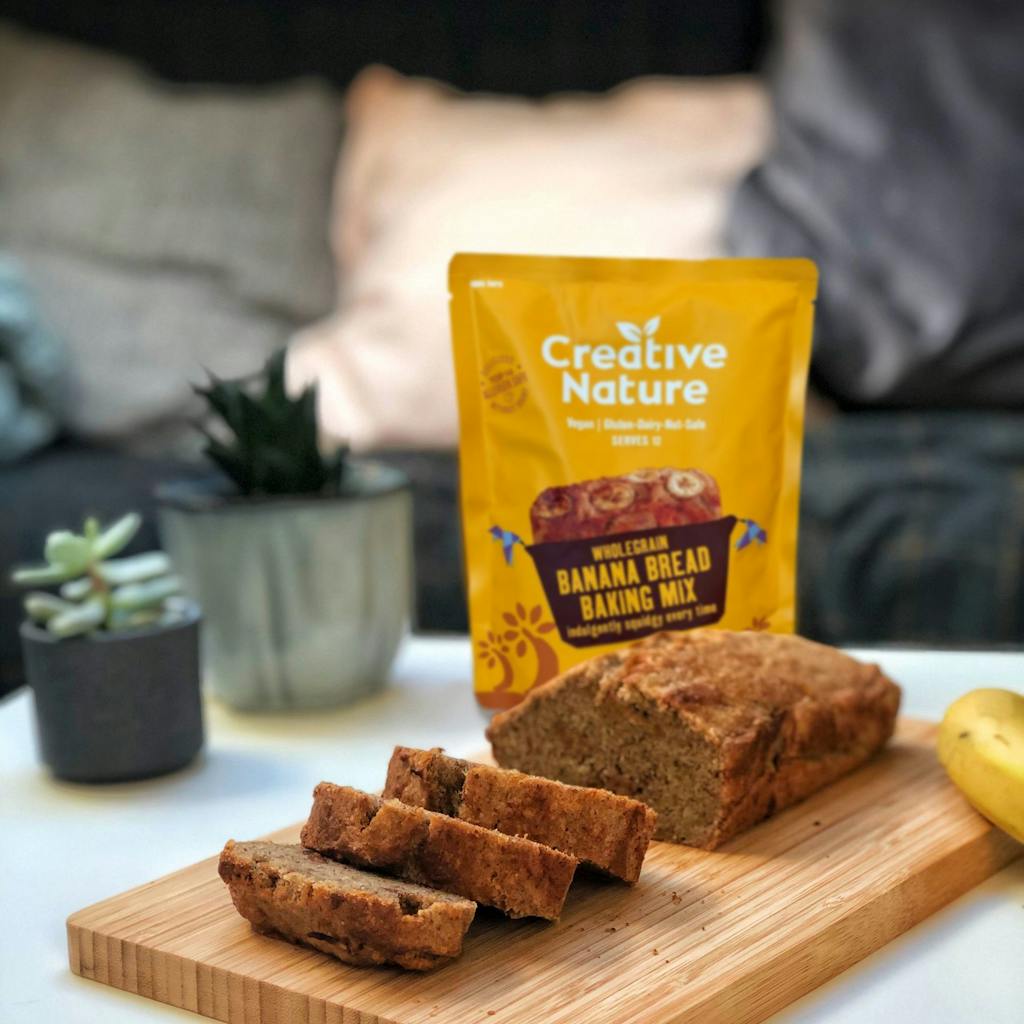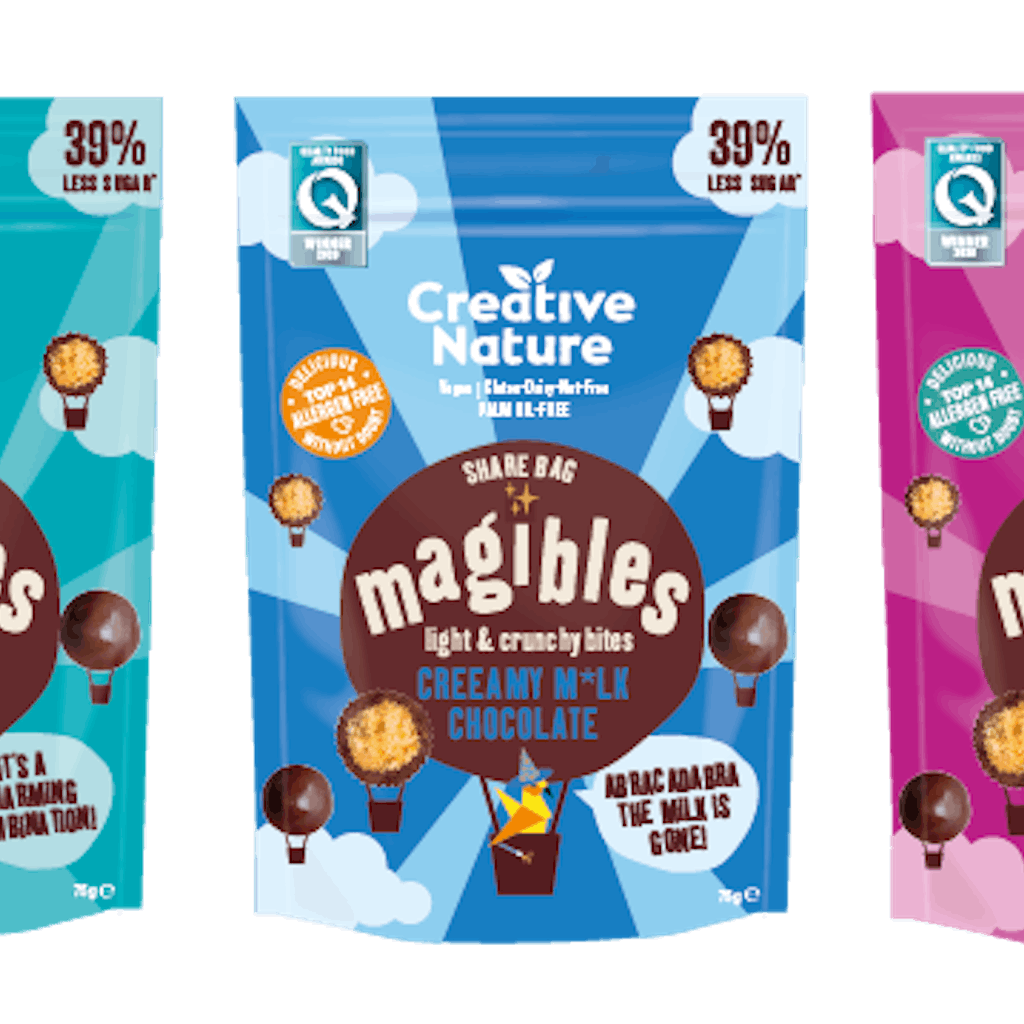The Story to Shelf interview series delves into the stories behind successful brand founders on RangeMe and their journeys of building their companies and bringing their products or services to retail. Our team is thrilled to interview these entrepreneurs and gain first-hand insights on their challenges, the creative solutions they used, and the tactics that helped them succeed. Get ready to learn from those who have been there and done that, and discover the secrets to success in the retail industry.
RangeMe founder Nicky Jackson kicks off the series with a 1:1 interview with Creative Nature’s founder Julianne Ponan.
The Story Behind Creative Nature
For people with major food allergies, shopping at a grocery store can be a series of Noes. No food with nuts. No food with seeds. No foods with certain additives. And for Julianne Ponan, who suffers from anaphylaxis to all of these, many of the allergen-free products she was able to consume had no taste.
Ponan was determined to change that with the launch of Creative Nature, a brand that specializes in baking mixes, snacks and confectionery products. Her mission was two-fold: to create products completely free of the top 14 common allergens and that taste delicious.
She took a failing business with a highly diverse product line and transformed it into a successful free-from business in just 18 months, making the Forbes Europe 30 Under 30 list along the way . Creative Nature now has products in 16 countries, and much of its exposure has come from its presence on RangeMe and participation in several of ECRM’s European Sessions.
Taking the Plunge with Eyes Wide Open
At 22 years old, Ponan bought Creative Nature with a product range that included mainly incense, candles, and statues with a limited selection of superfoods. She saw potential in the name and logo, so she took the risk and became CEO upon purchasing the company. “I was kind of thrown into the deep end,” explains Ponan. “I guess if you were to ask me would I go back and do the same thing, I would say yes, just for the fact that I learned a lot. However, it probably would’ve been easier to start from scratch.”
Creating the Products by Getting Close to Your Customers
Taste is the cost of entry for any food product, but especially for “free-from” products. If the taste isn’t there, the customers won’t be either. Ponan and her team sampled many products before hitting on the winning recipes. “The most important thing is to get as close to your customers as you can and you have to keep doing that,” says Ponan. “Understanding their need, their want, their taste palette,” because it can change over time.
Making Sure Your Product Is Retail Ready
Customers can often be the harshest critics, so product testing is critical to bringing new products to market. To ensure their products would be the most delicious available, the Creative Nature team extensively taste-tested until they got the recipes right.
Of course, they hit some bumps along the way, each one delivering a valuable lesson. When product testing in the London shopping area Kingston High Street, the team thought they had an amazing product. “However, when we sampled it, people even spat it out. It was not ready for market at all,” Ponan says, noting that this “wow” moment was crucial to her product development.
Continually listening to customers to get a deep understanding of what they want is vital, and taking the time to get the recipes right led to Creative Nature’s cold-pressed snack bar winning 2 gold stars in a blind taste test at the prestigious Great Taste Awards, making it the first cold-pressed bar the first to win in this category.
As the taste testers couldn’t see the packaging, they had no idea it was a “free from” product. That’s when Ponan knew she had a product ready to take to market.
Widening the Distribution Range with RangeMe
Fast forward to today, and Creative Nature products can be found in stores like Tesco, Sainsburys, Morrisons, and Asda in the UK and 16 countries globally, and the company is dipping its toes into the U.S. market. “We’ve done it through various platforms such as RangeMe,” says Ponan. “We’ve gone to ECRM Sessions and done tradeshows abroad.”
When it comes to widening distribution, Ponan points out that “it really does depend on which country, and I think you do need to take different models for each one.” Approaching supermarkets directly can be faster but isn’t always feasible in all countries. In the US, for example, she says there can be three or four people in the chain and you often have to work with a broker.
Ponan’s Advice for New Founders and Brand Builders
That’s where RangeMe comes in. “I think it gives you the knowledge that you need. It also gives you a shop window. That’s what we’ve used it for, to be able to upload your product and tell people about it. You can also connect directly to buyers through submissions when they are actually looking for your products.” In addition, Ponan recommends that once you connect or submit on RangeMe, “you do your due diligence and contact them outside of RangeMe as well.”
When discussing some of her early challenges and mistakes made, Ponan recounted a lesson learned when first marketing her new products. She hired a PR agency and got only two pieces of coverage that she realized she could have gotten herself. This has served as a reminder to be scrappy, especially in the early days when resources are scarce.
What’s Next for Creative Nature?
In the near term, Creative Nature will focus on exporting and growing its footprint in the U.S., Middle East and Australia. This means tackling the school market and expanding into airlines, two areas where people with allergies are often at risk. Fortunately, ECRM’s Food & Beverage Sessions provide access to just such buyers at organizations like hotel and restaurant chains, military commissaries and other non-commercial foodservice operations.
With allergen-free food on trend and top of mind, and as consumers increasingly move towards healthier choices, the environment is ripe for Creative Nature to continue to thrive with RangeMe and ECRM.




